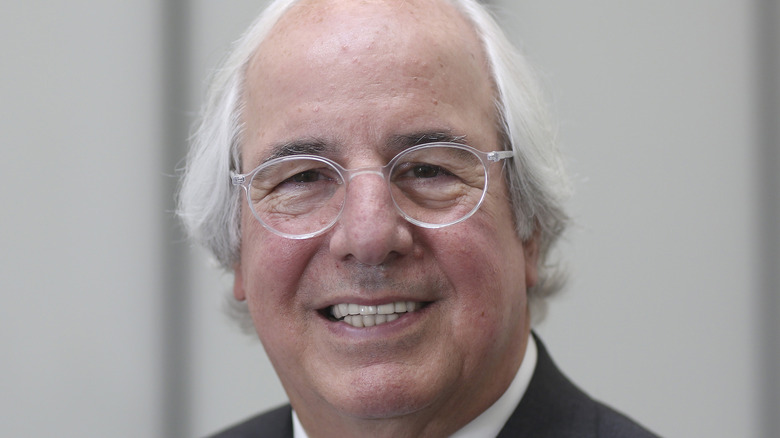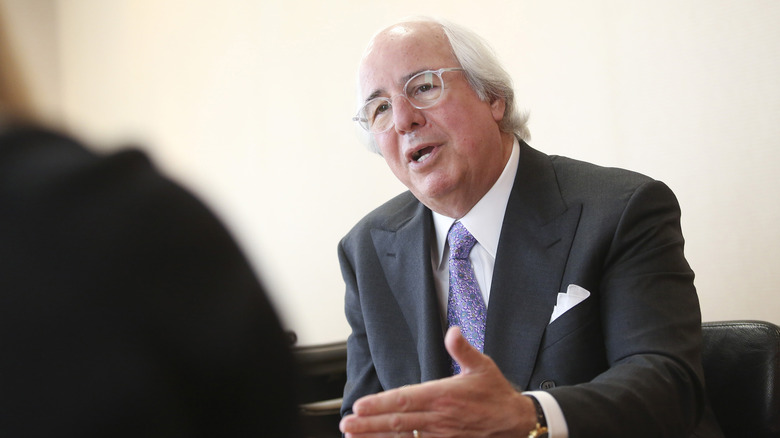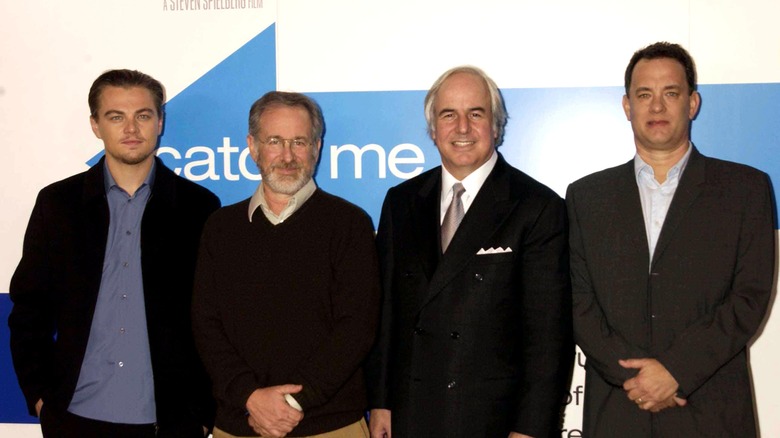The Frank Abagnale Theory That Would Change Everything
Moviegoers loved him because they all fantasized about what they would do with confidence like his. Frank Abagnale allegedly conned just about every respectable institution in the country in the 1960s and '70s. In his 2000 memoir, "Catch Me If You Can: The True Story of a Real Fake," Abagnale claimed to have impersonated a commercial airline pilot, doctor, college professor, and lawyer, in addition to being such an expert check forger that he was able to cash more than $2.5 million of them before the feds finally brought an end to his spree of cons.
Then Steven Spielberg got a slew of A-list actors to tell Abagnale's unbelievable story in the 2002 film "Catch Me If You Can," and the whole world believed it without a second thought. Well, almost the whole world. At least one viewer of the film remembers having his doubts about Abagnale's story from the get-go. "I remember just having this nagging feeling and that something just wasn't quite right about it," journalist Alan C. Logan told NPR in April 2021. Then, a couple decades later, a book he was working on led him back to those doubts he'd initially had, and he decided to take a closer look at the story of everyone's favorite conman.
Frank Abagnale wasn't as likable as Hollywood made him seem
Logan looked into Frank Abagnale's incredible story and found it to be full of holes. He tried to verify Abagnale's outrageous claims of what he'd done as a teenager and young man, but "nothing was adding up, nothing was verifiable." In fact, the details about Frank Abagnale's life that Logan could verify painted a much different picture of the swindler. The book and film present us with an irresistibly charming young man who recruits coeds to pose as flight attendants to lend credibility to his ruse. However, Logan found that Abagnale acted more like a stalker than a ladies' man. He became somewhat obsessed with a flight attendant named Paula Parks, then proceeded to creep on her pretty hard. "He followed her all over the Eastern Seaboard, identified her work schedule through deceptive means, and essentially stalked the woman," Logan said.
The conman showed up on her doorstep in New Orleans, then invited himself along on a trip to see her parents in Baton Rouge. After that visit, he returned to her parents' house, said he was a pilot on furlough, and charmed his way into their lives. Paula, however, didn't trust him, and for good reason. Abagnale ended up stealing $1,200 worth of checks from her parents during his stay with them.
Journalists debunked Frank Abagnale's story decades ago
Abagnale's grand hoax all began when a parole officer in Texas told him he ought to tell his story of "transformation." Little did he know, he'd just given the conman the idea for the biggest scam of his life. Abagnale started off giving speeches about his falsified past and eventually found himself on "To Tell The Truth," a game show in which celebrity panelists guessed which of three people was telling the truth about their life story. Abagnale was supposed to be the one with the true story, but the program didn't hire any fact-checkers, so his lie was believed without question.
The game show planted the seed that would become the elaborate scam he pulled on all of us. He was invited onto talk shows and interviewed by respected journalists like Tom Brokaw. Then we all watched Tom Hanks and Leonardo DiCaprio tell us his song and dance, and no one among us even thought to question Abagnale's credibility. Except for Logan, and he didn't even have to dig too deep to find the truth. He found local news reports dating back to the 1970s that proved Abagnale's stories to be complete falsifications. In the days before the internet, however, they didn't circulate, so the conman was able to just move on and continue telling his lie. But really, it's hard to be angry with Frank for fooling us. The movie is so fun that it was worth being duped.


